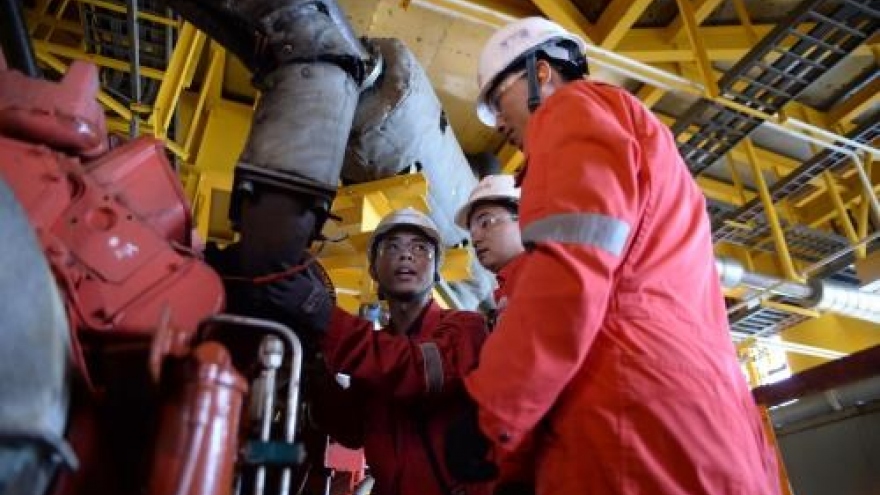PetroVietnam told to thoroughly deal with ailing projects
Deputy Prime Minister Trinh Dinh Dung attended a meeting on January 12 of the Vietnam National Oil and Gas Group (PetroVietnam), asking it to thoroughly address problems of five ailing projects in 2018.
 |
These projects are the Dinh Vu polyester fibre factory, the Dung Quat shipbuilding factory, and three bio-fuel plants.
At the meeting, which reviewed the group’s performance in 2017 and set tasks for 2018, the Deputy PM recognised PetroVietnam’s efforts to complete most of the tasks assigned by the Government.
However, there remain problems that may affect PetroVietnam’s development in 2018 and the following years, he said, elaborating that most existing oil and gas fields are now in the final stage of exploitation, leading to a decline in output, while the exploration of new fields is still slow due to limited capital and capacity.
In addition, the group has several poor-performing investment projects in Vietnam and other countries, which has influenced its prestige.
Challenges also come from outside factors such as unstable oil price recovery and output decrease in existing fields.
Deputy PM Dung told PetroVietnam to continue implementing offshore oil and gas projects in Vietnam’s continental shelf while speeding up key projects currently lagging behind schedule like the upgrade and expansion of the Dung Quat oil refinery, the Nghi Son refinery and petrochemical complex, and the southern petrochemical complex.
Speaking at the event, PetroVietnam Director General Nguyen Vu Truong Son said the group aims to exploit 22.83 million tonnes of oil equivalent, including 13.23 million tonnes of crude oil, in 2018. It will step up exploration activities so as to raise oil and gas reserves this year to 10 – 15 million tonnes of oil equivalent.
The firm will also press on with divestment of State capital from businesses in line with the 2017-2020 plan approved by the Prime Minister, thoroughly deal with issues at the five ailing projects, carry out timely solutions to cope with oil price changes, and accelerate the progress of lagging projects.

